Berkshire aerial sprays to kill oak processionary moth to continue
- Published
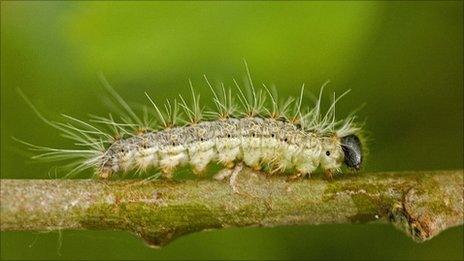
The oak processionary moth caterpillar feeds on oak leaves
More woodland is to be sprayed with bacteria from the air to eliminate a toxic caterpillar, despite fears of the effect on other wildlife.
Parts of Sulham Woods near Tilehurst, Berkshire, will be targeted by the Forestry Commission in May.
The commission's first spraying nearby sparked an outcry.
A commission spokesman said it had found evidence the oak processionary moth, which damages oak trees and is harmful to humans, was still present.
'Extremely concerned'
He said the bacterial agent used, Bacillus thuringiensis, was "not known to cause any harm to humans or most animals."
But Butterfly Conservation chief executive Martin Warren said he was "extremely concerned" about the aerial spraying method.
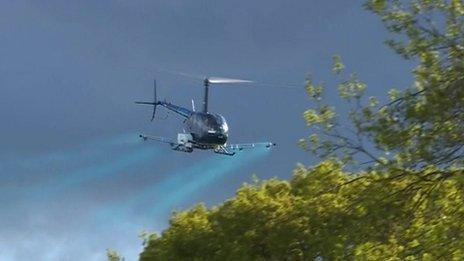
The bacterial agent used occurs naturally in soil
He said: "The spray will kill the caterpillars of all the butterflies and moths present, at a time when birds are feeding their young."
A Freedom of Information request showed Natural England also had concerns about the method.
Itchy rashes
The moth caterpillar contains a toxin in its hairs that can cause itchy rashes, eye and throat irritations.
They feed on oak leaves and produce silken nests on trunks and branches.
The commission said no nests were found last year in Pangbourne, but it was spraying the area because five adult male moths were found.
It said that while this did not indicate a breeding population, it did show the pest had not been completely eliminated from the area.
BugLife campaigns officer Vanessa Amaral-Rogers called the spraying irresponsible.
She said: "The five moths caught at Sulham Woods were found in pheromone traps which lure the moths over a significant distance, males being able to fly several kilometres.
"If oak processionary moths are not present in Sulham Woods, other species of native moths such as green tortix will be wiped out in that area for no reason".
The commission could not give an exact date for the spraying in May, but said it would close off the areas to be sprayed and post news on its website, external.
- Published13 November 2013
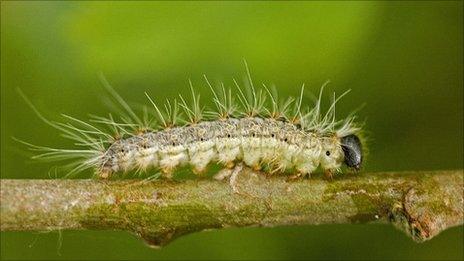
- Published21 October 2013
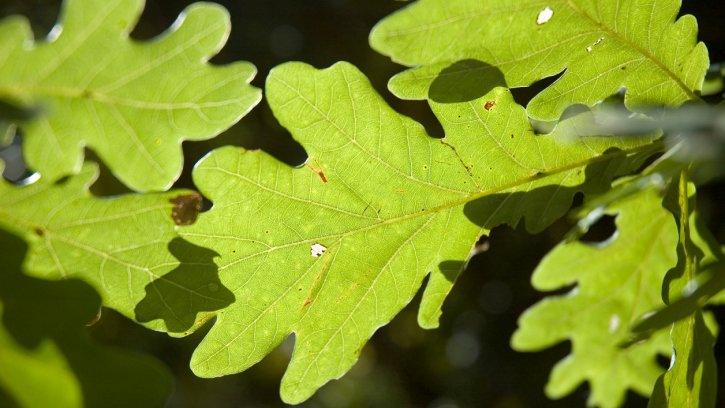
- Published15 May 2013
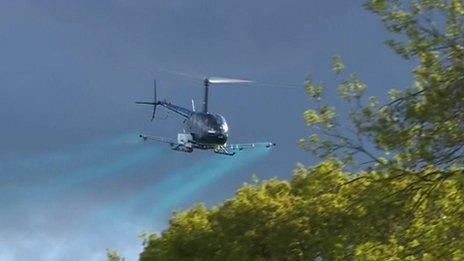
- Published7 May 2013

- Published18 May 2012
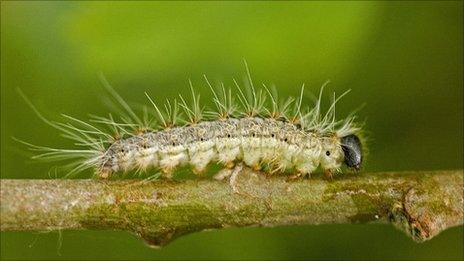
- Published1 May 2012
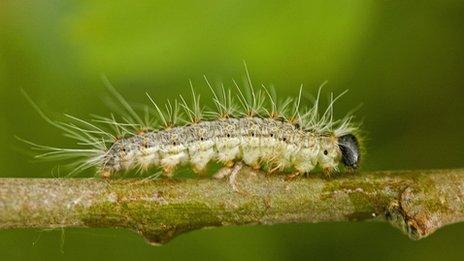
- Published27 January 2012

- Published18 April 2011
